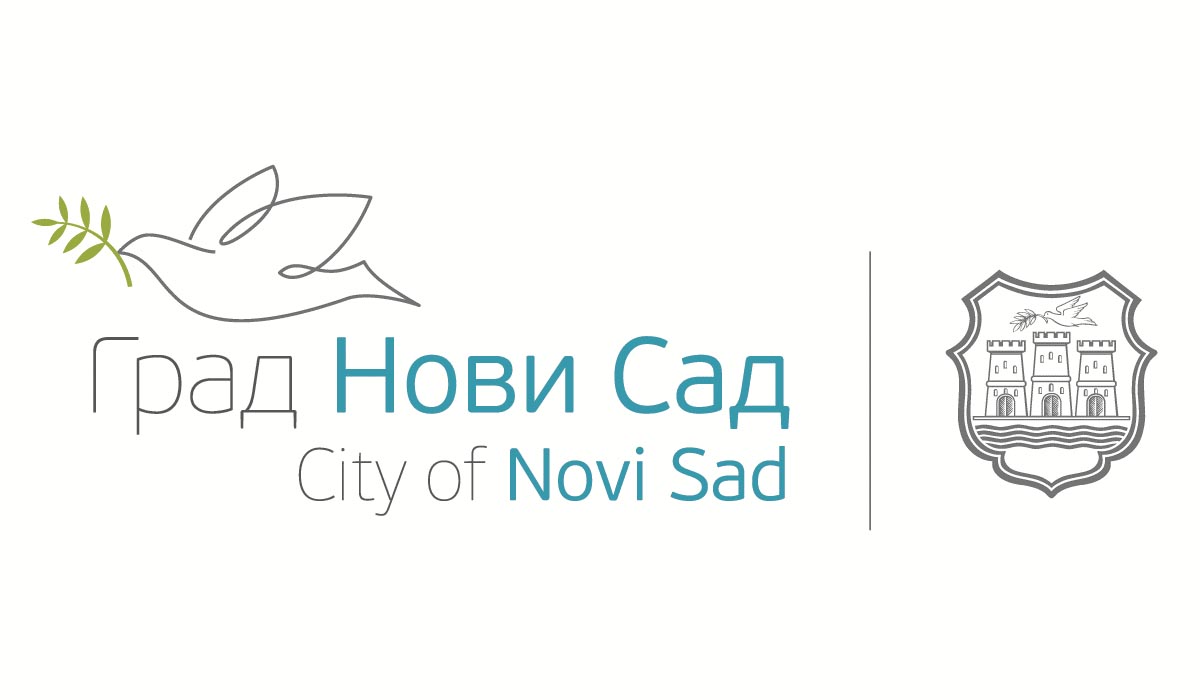СОФОКЛОВ АЈАНТ И ЕУРИПИДОВ ХЕРАКЛЕ
DOI:
https://doi.org/10.19090/i.2020.31.65-77Кључне речи:
самоубиство, Ајант, Херакле, Софокле, Еурипид, самоћа, Пелопонески рат, самодовољност, пријатељство, ТезејСажетак
Самоубиство, упркос томе што је санкционисано и религијским и друштвеним мерама, често је било одговор древних Грка на притиске у оквиру заједнице, било да је реч о одбрани части, страху од срама или o жртви за опште добро полиса или неке интересне групе. Античка драма, за разлику од философа, преносила је центар занимања са самог чина на унутрашњи свет самоубице, на стање духа и на сплет мисли, допуштајући Атињанима да на непосредан начин проживе њихову агонију. Еурипид и Софокле су у својим трагедијама, насталим у две различите епохе, приказали карактер и дух две различите личности, Херакла и Ајанта. Они, суочени са тешким ударцима и емотивним страдањем, заузимају супротне ставове према животу. Ајант јe чедо херојског и витешког доба када је Атина била на врхунцу моћи, а његов творац живео је у полету свехеленства, славио херојске победе, веровао у праведни поредак. За разлику од Херакла, Ајант нема правог пријатеља, особу која би га подржала и од самоубилачког наума одвратила. Теукро, његов полубрат није присутан, а и слабији је карактер; Текмеса, колико год била одана, бивша је робиња, а начин на који Ајант са њом разговара открива колико мало психолошке блискости они деле; морнари, Саламињани, свом душом су уз заповедника, али су му ипак подређени. Најзад, да такав пријатељ и постоји, мало би могао да утиче на Ајанта, јер је он проблематична личност, горд, сујетан, тврдоглав и бескомпромисан. Ајант је уистину најусамљенија личност грчке трагедије, те отуда можда и није изненађење да је његово самоубиство једино које је приказано на сцени. Еурипиду, као и његовом Хераклу, све је пометено и доведено у питање. У очају и безнађу Пелопонеског рата, „најтрагичнији” има само себе и своје јунаке. Тек мрвицу славе. Зато његов Херакле има Тезеја, пријатеља каквог Ајант нема. Себи равног јунака који даје моралну подршку и материјалну потпору. Његову реч и савет, иако их прво оспорава, очајава и јогуни се, Херакле на крају прихвата. Прихвата дубински јер је успео да прихвати себе таквог какав је. Много је тешко, али може се са собом.
Downloads
Референце
Sophocles, Electra and Other Plays: Ajax, Electra, Women of Trachis, Philoctetes, translated by E. F. Watling, Harmondswoerh-Middlesex: Penguin Books Ltd, 1973.
Arjava, A. Women and law in late antiquity, Oxford: Oxford University Press, 1996.
Adkins, A. W. H. Merit and responsibility: A study in Greek values, Oxford: Oxford University Press, 1960.
Battin, M.P. Ethical issues in suicide, Englewood Cliffs, New Jersey: Prentice Hall, 1982.
Bremmer, J. The early Greek concept of the soul, Princeton: Princeton University Press, 1983.
Burkert, B. Structure and History in Greek Mythology and Ritual, Berkeley: University of California Press, 1979.
Cooper, J. M. Reason and Emotion: Essays on ancient moral psychology and ethical theory, Princeton: Princeton University Press, 1999.
David, E. ῾Suicide in Spartan society᾿, in: Spartan Society (ed. T. J. Figueira), Glasgow, Swansea: The Classical Press of Wales, 2004, 25−46.
De Jong, I. J. F. Homer: Critical Assessments, II vol. London/New York: Routledge, 1999.
Diels, H. Kranz, W. Die Fragmente der Vorsokratiker, Griechisch und Deutsch, Zurich: Weidmann Verlag, 1985.
Dover, K. Greek Popular Morality: In the Time of Plato and Aristotle, Oxford: Blackwell, 1974.
Dukat, Z. Sofoklo: Ogledi o grčkoj tragediji, Rijeka: Izdavački centar Rijeka, 1981.
Faber, M. D. Suicide and Greek tragedy, New York: New York Sphinx Press, 1970.
Frejdenberg, O. M. Mit i antička književnost, Prevod Radmila Mečanin, Beograd: Prosveta, 1987.
______. Image and Concept: Mythopoetic Roots of Literature, London: Routledge, 1997.
Frey, R. G. ῾Did Socrates commit a suicide?᾿ in: Philosophy Vol. 53, No. 203, 1878, 106−108.
Garrison, E. P. Attitudes towards suicide in ancient Greece, Transactions and Proceedings of the American Philological Association 121, 1991, 1−34.
Garrison, E. P. Groaning Tears: Ethical and dramatic aspects of suicide in Greek tragedy, Leiden/New York: E.J. Brill, 1995.
Hall, E. Greek Tragedy, Suffering Under the Sun, Oxford: Oxford University Press, 2010.
Henry, A. S. ῾Bios in Sophocles᾿ Philoctetes᾿, The Classical Review 24, 1974, 3−4.
Hirzel, R. Der Selbstmord, „Der Selbstmord“, in: Archiv für Religionswissenschaft 11, Leipzig, 1908, 243–417.
Van Hooff, A. J. L. From Autothanasia to Suicide: Self-killing in Classical Antiquity, London: Routledge, 1990.
Jouan, F. Ajax, d᾿Homère à Sophocle, Information Littéraire 39, 1987, 67−73.
Katsouris, A. ῾The suicide motif in ancient drama᾿, Dioniso 47, 1976, 5−26.
Kitto, H. D. F. The Greeks, Oxford: Oxford University Press, 1962.
Knox, B. M. W. ῾The Ajax of Sophocles᾿, Harvard Studies in Classical Philology 65, 1961, 1−37.
______. The heroic temper: Studies in Sophoclean Tragedy, Berkeley/Los Angeles: University of California Press, 1964.
Loraux, N. Tragic Ways of Killing a Woman, Cambridge, MA: Harvard University Press, 1991.
Maričić, G. Sofokle i njegova Antigona: stvaralac i tragedija kroz vekove, Beograd: NNK Internacional, 2020.
Mikalson, J. D. Honor Thy Gods: Popular Religion in Greek Tragedy, Chapel Hill/ London: The University of North Carolina Press, 1991.
Naiden, F. S. ῾The sword did it: A Greek explanation for suicide᾿, The Classical Quarterly 65, 2015, 85−95.
North, H. Sophrosyne. Self-knowledge and self-restraint in Greek literature, New York: Cornell University Press, 1966.
Ringer, M. Electra and the empty urn: Metatheater and role playing in Sophocles, Chapel Hill: The University of North Carolina Press, 1998.
Ryzman, M. ῾Heracles’ destructive Impulses: a Transgression of natural Laws (Sophocles᾿ Trachiniae)᾿, Revue belge de Philologie et d'Histoire 71/1, 1993, 69−79.
Segal, C. Sophocles᾿ tragic world: divinity, nature, society, Cambridge, MA: Harvard University Press, 1995.
Sorum, C. E. ῾Sophocles᾿ Ajax in context᾿, Classical World 79. 6, 1986, 361−377.
Sicherl, M. ῾The tragic issue in Sophocles᾿ Ajax᾿, Yale Classical Studies 25, 1977, 67−98.
Sourvinou-Inwood, C. Tragedy and Athenian Religion, Lanham: Lexington Books, 2003.
Suvak, V. (ed.), Care of the Self: Ancient problematizations of life and contemporary thought, Leiden/Boston: Brill, 2017.
Stalley, R. F. An Introduction to Plato᾿s Laws, Indianapolis: Hackett Publishing, 1983.
Škiljan, D. Aktualnost grčkog teatra nekad i sad, Latina et Graeca I, Zagreb: Liber, 1973.
Tzanetou, A. City of Suppliants: Tragedy and the Athenian Empire, Austin: University of Texas Press, 2012.
Yoshitake, S. Disgrace, Grief and other Ills: Heracles᾿ Rejection of Suicide, Journal of Hellenic Studies 114, 1994, 135−153.










